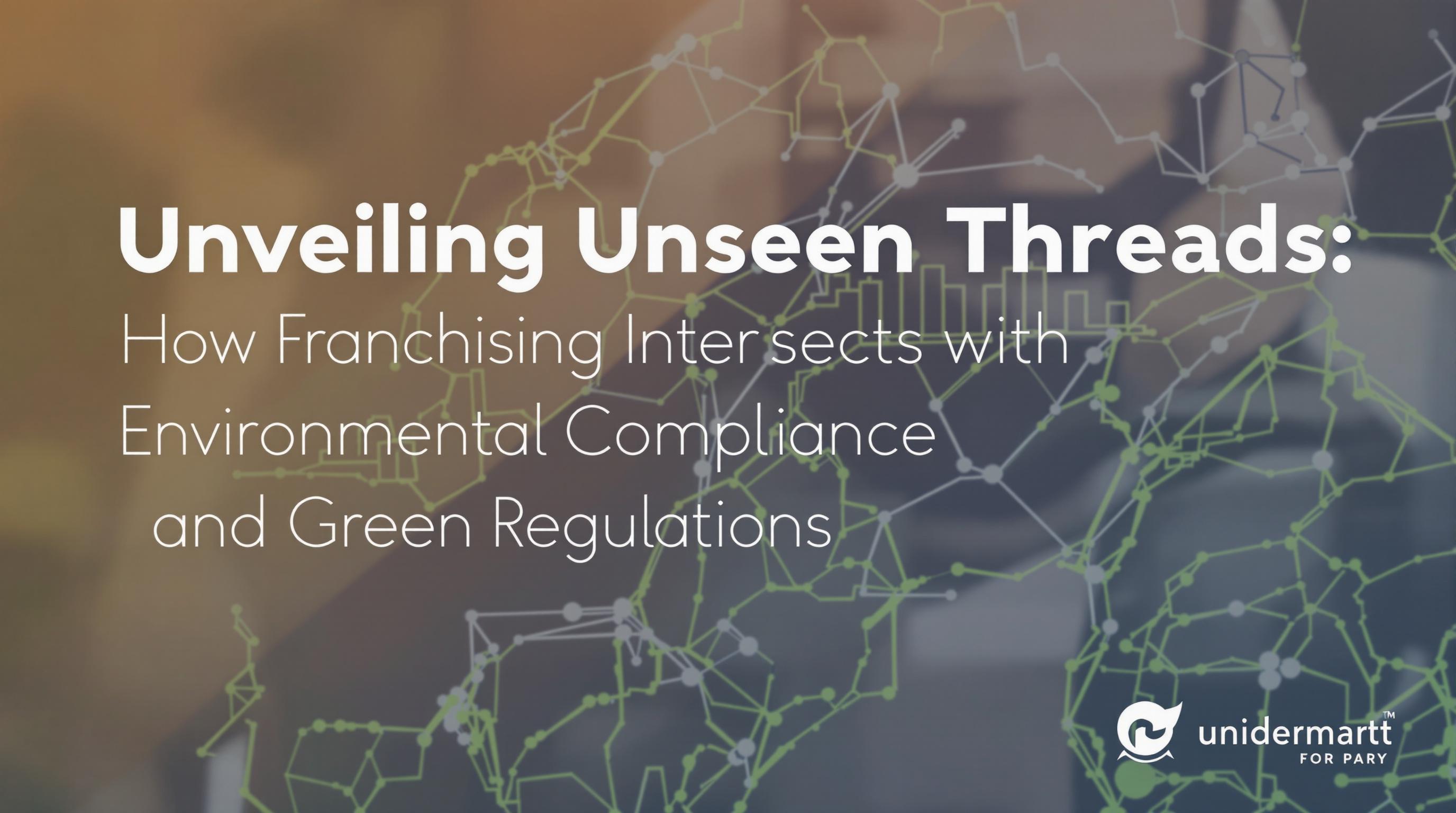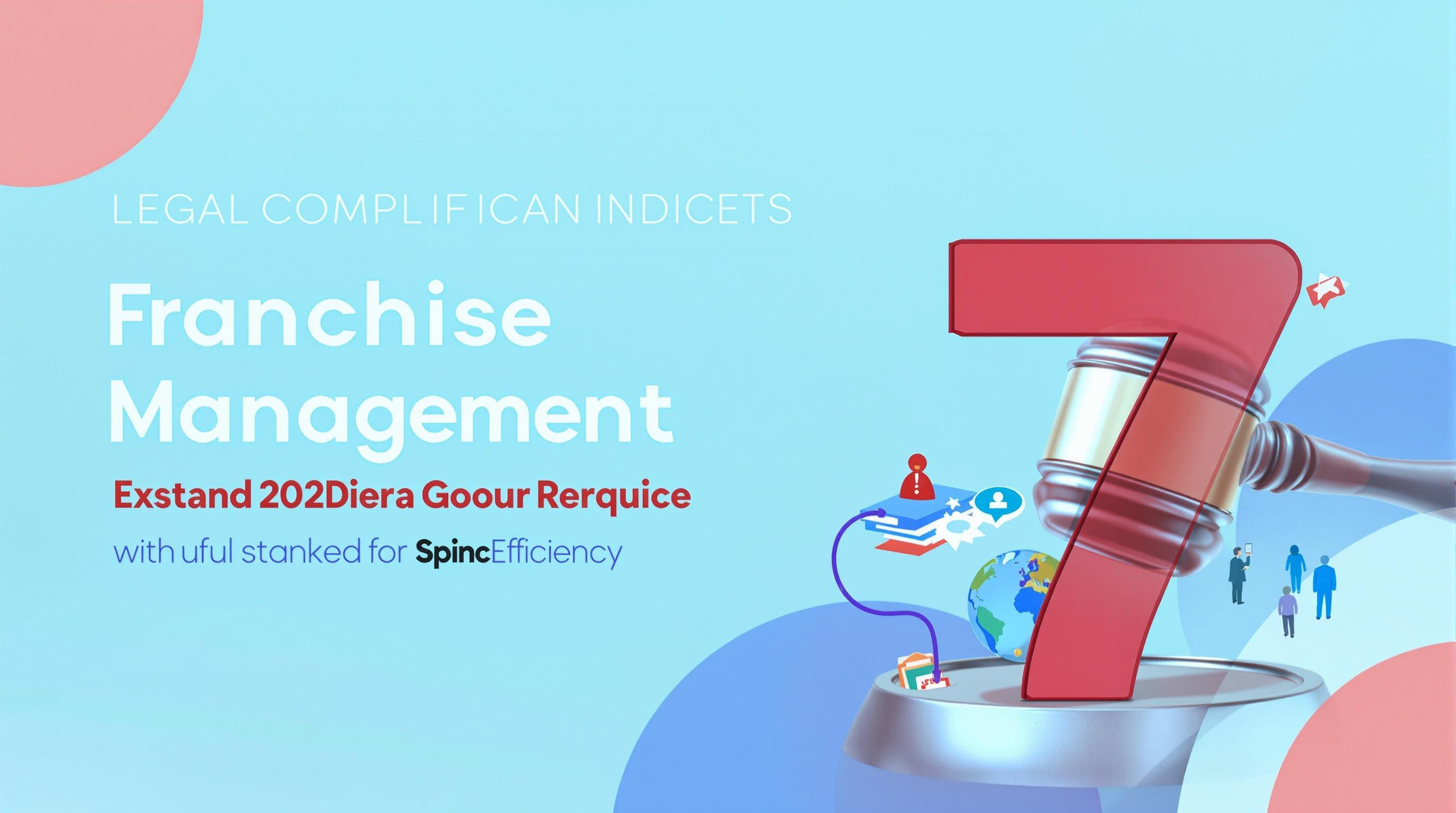Related Articles
- 7 Best Emerging GDPR Tools to Future-Proof Your Data Strategy Beyond Standard Compliance
- 7 Cutting-Edge Franchise Management Softwares Released Since 2019 Ranked for Legal Compliance and Efficiency
- How Forgotten Folklore Influences Modern Privacy Norms and Unexpected Data Protection Practices
- When Silence Speaks: The Unexpected Impact of Cultural Nuances on Confidential Agreement Effectiveness
- Unveiling Unseen Threads: How Franchising Intersects with Environmental Compliance and Green Regulations
- Unraveling the Impact of Cultural Misalignment in Cross-Border Collaborations on Partnership Sustainability
Unveiling Unseen Threads: How Franchising Intersects with Environmental Compliance and Green Regulations
Unveiling Unseen Threads: How Franchising Intersects with Environmental Compliance and Green Regulations
Franchising and environmental compliance are more interconnected than many realize, influencing both operational protocols and brand reputations within green regulations. This article unpacks their relationship through a mix of empirical data, real-world examples, varying tones, and diverse structures to illuminate this multifaceted subject.
The Green Revolution: Why Franchises Can't Afford to Ignore Compliance
Imagine this: You’re a franchise owner of a national coffee chain, excited about your new store. Suddenly, you receive a hefty fine because your business didn’t meet newly enacted environmental standards. Ouch.
The reality is that green regulations are no longer just add-ons; they’re core to doing business sustainably. According to the Environmental Protection Agency (EPA), nearly 40% of U.S. businesses with over 20 employees have adopted environmental management systems that include compliance with local green regulations. Franchises, often operating under unified brand standards, must navigate complex local, state, and federal laws that govern everything from waste disposal to energy consumption.
Storytime: From Trash to Triumph
Take the example of GreenBite, a mid-sized fast-food franchise that was initially blindsided by environmental inspections highlighting their high plastic waste. Was it a setback? Yes. Did they overcome it? Absolutely. They revamped their packaging, implemented rigorous recycling policies, and even partnered with suppliers committed to sustainable sourcing. The payoff? A 20% increase in positive customer feedback and a 12% boost in sales within a year.
The Regulatory Maze: A Formal Perspective
Regulatory frameworks such as the Clean Air Act, Resource Conservation and Recovery Act (RCRA), and state-level mandates dictate how franchises manage emissions, waste, and resource usage. Compliance isn’t merely bureaucratic; it requires structured operational adjustments. Research institutions highlight that non-compliance can increase operational costs by up to 30% due to fines, retrofits, and lost business.
Conversational Insight: Let's Break It Down
Hey, did you ever think about how your favorite burger joint manages its trash or keeps the lights on without wasting energy? Well, there’s a ton of behind-the-scenes work ensuring they follow environmental laws. And since franchises usually replicate the same business model in multiple locations, they have to stay sharp to pass those monthly or quarterly checks.
Also, franchising makes it slightly easier nowadays because the corporate office often provides guidelines on environmental practices, helping the smaller franchisees stay on the right track. But still, local rules can be wildly different—what’s green in California might not be the same down in Texas.
Statistics That Matter
Environmental compliance overlaps with business performance too. A 2023 Nielsen report showed 66% of consumers said they’d switch brands to one more environmentally responsible. For franchises that rely heavily on brand loyalty across regions, failing to meet green regulations could lead to loss of their customer base.
The Case of Starbucks: Leading by Environmental Example
Starbucks has famously invested in environmental sustainability, with goals to become “resource positive” by reducing carbon emissions, water withdrawal, and waste. Franchise partners are encouraged to follow eco-friendly practices such as installing energy-efficient appliances, supporting ethical sourcing, and minimizing single-use plastics. This alignment between franchisor and franchisee demonstrates the potential synergy when environmental compliance is taken seriously.
Humorous Take: The “Green” Ghostbusters
Picture franchise owners donning capes armed with recycling bins instead of proton packs, chasing down waste violators one paper cup at a time. While funny, it underscores the very real role franchisees play in “ghostbusting” environmental harm. Neglecting compliance might awaken the regulatory spirits who are notoriously unforgiving—ghostbusters, beware!
Practical Challenges in Franchise Environmental Compliance
One major hurdle is variance in regulations across jurisdictions. A franchise chain spanning multiple states must adapt its practices to comply with distinct local mandates, potentially increasing training and operational costs. The consistency expected by brand standards can sometimes collide with environmental regulations that require localized responses.
Additionally, smaller franchisees might lack resources or expertise to implement complex green technologies or waste management systems without franchisor support. Collaborative efforts and knowledge sharing therefore become crucial.
A Persuasive Appeal: Why Sustainability is Your Franchise’s Best Friend
Look, engaging with environmental compliance is not just a checkbox—it’s a strategic move toward profitability and longevity. Customers nowadays demand ethical responsibility, governments tighten regulations, and investors are favoring ESG-conscious businesses. Franchises embracing green regulations aren’t just protecting the planet; they’re future-proofing their operations.
Case studies repeatedly show that sustainability drives innovation, reduces costs through energy savings, and improves brand loyalty. Ignoring these threads can unravel the whole fabric of a franchise’s reputation and financial stability.
Creativity in Compliance: Innovation Meets Green Regulation
Several forward-thinking franchises have embedded environmental criteria into their business models to stand out. For example, a sandwich franchise introduced an app allowing customers to track waste footprint for each order, rewarding eco-friendly choices with discounts. Such initiatives meld compliance with creativity, engaging customers on a deeper level while meeting regulatory demands.
The Future: Where Franchising and Green Regulation Could Head
Emerging trends like zero-waste policies, carbon offsetting, and circular economy principles will increasingly shape franchising strategies. Digital tools for monitoring resource consumption will gain traction, making compliance more seamless and transparent. The franchise model, with its standardized processes and widespread reach, is ideally positioned to become a powerhouse for sustainable change.
In Summary
The unseen threads weaving franchising and environmental compliance together are complex but crucial. From regulatory frameworks and consumer expectations to innovation and operational challenges, their intersection shapes contemporary business landscapes. Franchises that understand and embrace these connections position themselves not only as responsible corporate citizens but as winners in tomorrow’s green economy.
Written by Thomas, age 49, for readers aged 16 to 70 who are curious about how everyday businesses intersect with environmental responsibility in practical and impactful ways.
Sources:
Environmental Protection Agency (EPA), 2023; Nielsen, 2023; Starbucks Corporate Responsibility Reports, 2022; Journal of Environmental Management, 2021.



